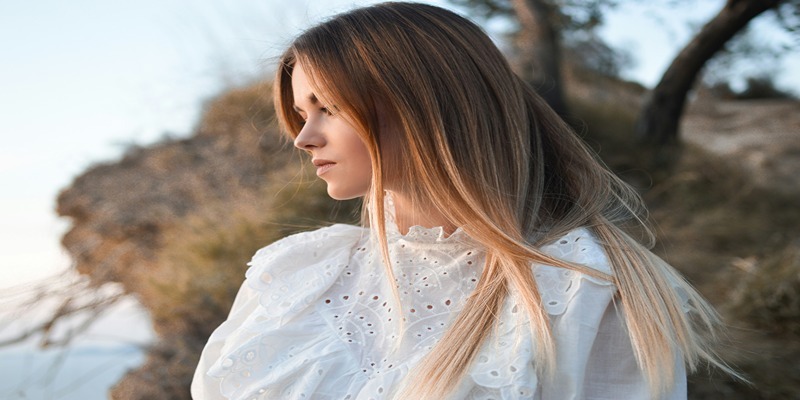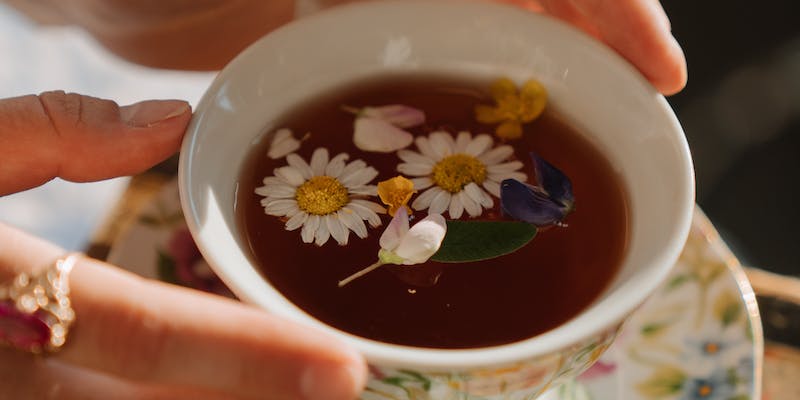Hard Water Effects on Hair
Aug 03, 2024 By Nancy Miller
Water hardness is another problem that is quite widespread among households, which is defined by the presence of calcium and magnesium ions. Although it may not necessarily present severe health effects, hard water is very damaging to hair. The minerals in hard water over a period of time make hair dry, frizzy and unmanageable and it becomes hard to style it. This article is a good example of how the use of hard water can harm the hair, making it dry and frizzy and what can be done to avoid this. Knowing how hard water affects your hair is the first step towards managing hair that is difficult to care for due to the water hardness.

Hard Water: What is it?
It contains a lot minerals and the concentration of these minerals may also differ with the geographical location since some areas may experience high level of water hardness as compared to others. The minerals in hard water react with soap and shampoo to make them less effective and leave a film on hair and skin. This buildup can make hair feel rough and hard to manage, thus the need to incorporate the use of shampoo in hair care routines. The knowledge of what hard water is and its content is essential for combating the effects of hard water on hair.
Hair Effects of Hard Water
Dryness and Frizz
The water that is hard makes the hair dry and brittle since it removes the natural oils of the hair. The high mineral content especially calcium and magnesium create a layer on the hair that locks out moisture from getting to the hair shaft. This results to hair which is dry, brittle and easily breaks at the slightest provocation and is characterized by frizz. Also, the minerals alter the texture of the hair cuticle to be rough and unmanageable to handle. Therefore, hair is made more vulnerable to environmental factors and styling tools and hence dryness and frizz are aggravated. Long-term use of hard water will leave your hair dry and looking fuzzy, it would be hard to maintain shiny and silky hair.
Buildup and Residue
The minerals that are found in hard water can cling to the hair and the scalp and hence cause a lot of deposit and dirt. Such a buildup makes hair to feel laden, oily and soiled even after washing them in the next morning. The minerals react with shampoo and conditioner and make them less effective and leave behind a soapy residue that is hard to wash off. In the long run, this residue accumulates and blocks the hair follicles, therefore hindancing hair growth to appear flat and limp. The accumulation of these products must be washed off with clarifying shampoos and the correct rinsing methods to enhance the natural sheen and volume of the hair.
Color Fading and Damage
Hard water can worsen the rate at which colours fade and can also be damaging to hair especially for those with treated hair. The minerals in hard water raise the hair cuticle and let the color molecules to evaporate and thus make hair color fade and become dull in a shorter time. Also, the accumulation of minerals may form a layer that hinders the penetration of hair dye resulting to patchy hair color. The constant impact of hard water also compromises the hair shaft and thus hair becomes brittle and develops split ends. This is why, in order to preserve colored hair, one needs to use products that counteract the impact of hard water on hair.
Scalp Health Issues
The quality of water can affect the condition of the scalp; it can cause dryness, itchiness, and scaly skin. The minerals in hard water cause the scalp to lose its natural oils hence causing dryness and itchiness. This can further worsen symptoms of dandruff and seborrheic dermatitis among other related ailments that people are bound to encounter at one point in their lives. Moreover, the deposits from hard water can also cause blockage of hair follicles hence inflammation and possible baldness. The scalp needs to be washed regularly to eliminate the buildup and treated with moisturizing products to offset the effects of hard water. This in turn helps in maintaining the right scalp environment that is healthy for the growth of hair.
Solutions to Combat Hard Water Effects
Clarifying Shampoos
Even though hard water contains minerals, it is effective in accumulating the product residues that require clarification shampoos to remove. These shampoos contain more potent surfactants that can easily lather and remove the residues that stick on your hair and the scalp. When washing your hair, it is advisable to use a clarifying shampoo once a week to prevent over-stripping the hair of its oils. Some of the best examples of a clarifying shampoo include Neutrogena Anti-Residue Shampoo and Paul Mitchell Clarifying Shampoo Two. Using these shampoos frequently will assist in maintaining the natural sheen and softness of your hair and this will be good for your hair even with the effects of hard water.

Water Softeners and Filters
One can install a water softener or filter which will reduce the hardness of water to a large extent and hence reduce the harm that water does to hair. This can help avoid accumulation of minerals on your hair and the scalp. Shower filters are easier to install and can be very useful in removal of chlorine and other chemicals. Some of the brands in the market that can provide you with quality water softeners and filters include Culligan and Aquasana that can enhance the quality of water thus enhancing hair and scalp health.
Tips for Maintaining Healthy Hair with Hard Water
The following practices should be observed to keep hair healthy even with hard water. To avoid this, one should use a leave in conditioner or hair mask often to give the hair extra moisture and shield it from the mineral deposits. The final rinse should be done with filtered or distilled water to ensure that there is no hard water deposit left on your hair. Use a chelating shampoo once a month to really strip the hair and rid it of accumulated minerals. Do not expose your hair to heat tools or direct sunlight since this will worsen the dryness and damage of the hair. Finally, consume a diet that is well balanced, filled with vitamins and minerals to help the hair from the root.
Conclusion
The effects of hard water include hair dryness, frizzy hair, hair build up and even fading of hair color. However, by knowing these effects, there are ways to minimize the damage like using clarifying shampoos, as well as having water softeners or filters. However, incorporating some basic hair care measures will go a long way in preserving the hairs health regardless of the hard water issues. With these measures in place, you can keep your hair neat, healthy, and gorgeous even if the water you use is not of the best quality. These are some of the strategies that can be adopted for better hair and a better you.







